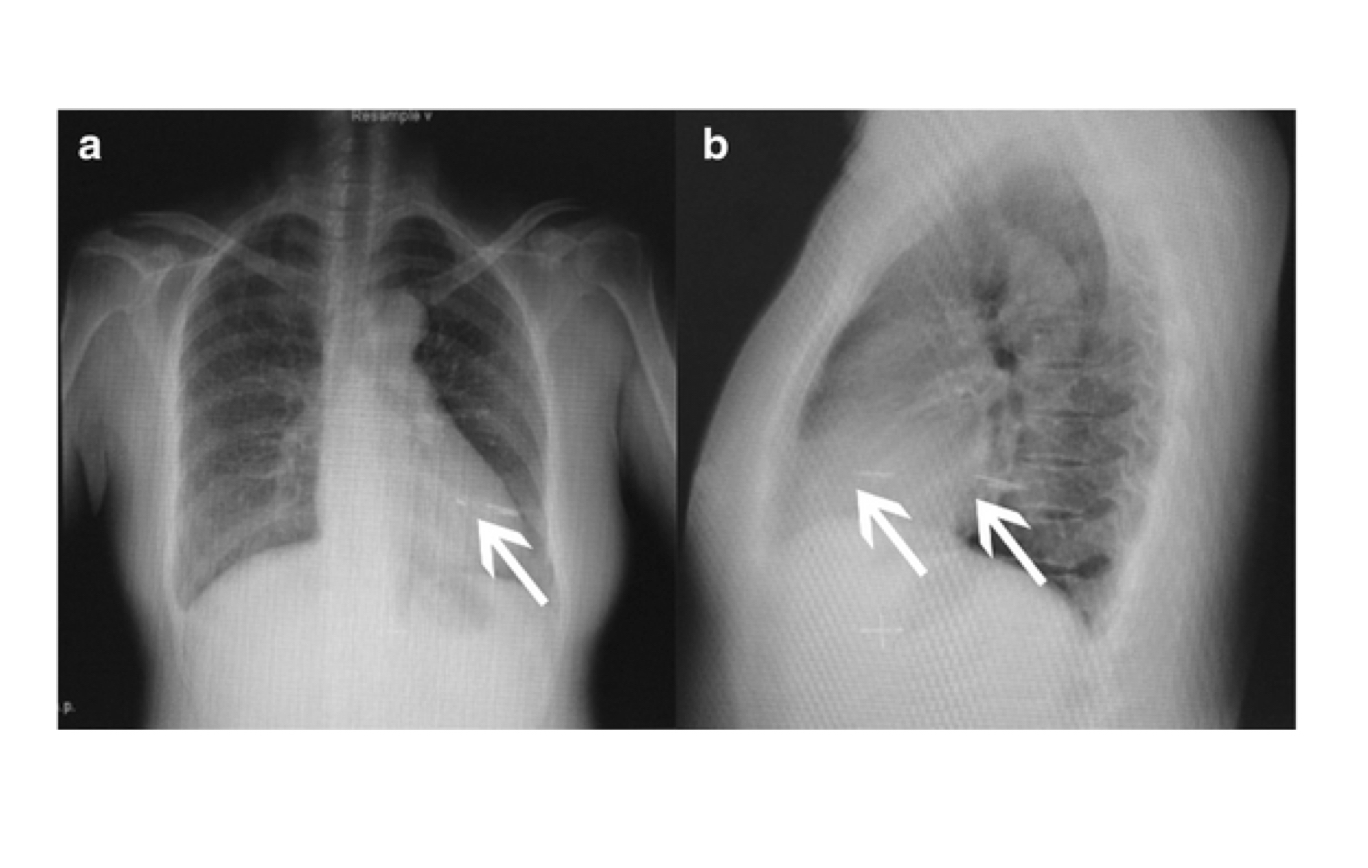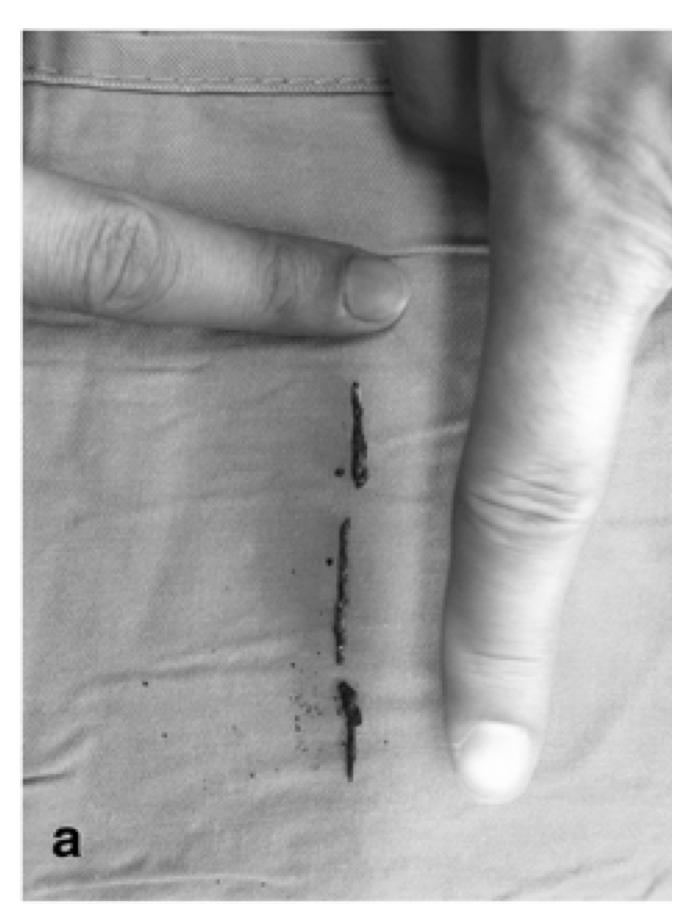Needle Stuck in Woman's Heart Gives Her a Stroke

Get the world’s most fascinating discoveries delivered straight to your inbox.
You are now subscribed
Your newsletter sign-up was successful
Want to add more newsletters?

Delivered Daily
Daily Newsletter
Sign up for the latest discoveries, groundbreaking research and fascinating breakthroughs that impact you and the wider world direct to your inbox.

Once a week
Life's Little Mysteries
Feed your curiosity with an exclusive mystery every week, solved with science and delivered direct to your inbox before it's seen anywhere else.

Once a week
How It Works
Sign up to our free science & technology newsletter for your weekly fix of fascinating articles, quick quizzes, amazing images, and more

Delivered daily
Space.com Newsletter
Breaking space news, the latest updates on rocket launches, skywatching events and more!

Once a month
Watch This Space
Sign up to our monthly entertainment newsletter to keep up with all our coverage of the latest sci-fi and space movies, tv shows, games and books.

Once a week
Night Sky This Week
Discover this week's must-see night sky events, moon phases, and stunning astrophotos. Sign up for our skywatching newsletter and explore the universe with us!
Join the club
Get full access to premium articles, exclusive features and a growing list of member rewards.
A 48-year-old woman in China suffered a stroke that was later found to be caused by a finger-length needle stuck in her heart, according to a new case report.
The needle had pierced the woman's chest a few months before the stroke (although the case report doesn't say how it happened). It had penetrated layers of tissue and had gotten stuck in her heart muscle.
Once the needle was there, a calcified mass formed around it, and this mass eventually created a blood clot that traveled to her brain, where it caused multiple strokes.
A patient with a foreign body in the heart is expected to show symptoms such as chest pain, difficulty breathing, fever, abnormal heartbeat and heart infection. [Images: X-Rays Reveal the Needle in Woman's Chest]
"Most patients are diagnosed accurately and treated promptly with the help of patients' individual histories," the doctors who treated the woman wrote in their report of the case, published in the Journal of Medical Case Reports in February. "However, patients who have some impairment in communication are difficult to diagnose," they said.
The woman had initially gone to the hospital after she had fallen unconscious for a few minutes. Because a previous bout of encephalitis, or inflammation of the brain, had left her with difficulty speaking, she brought her cousin with her to tell the story.
The cousin told the doctors that, a few weeks prior, around the time she had fallen unconscious, the woman had a fever, cough and what looked like a common cold.
Get the world’s most fascinating discoveries delivered straight to your inbox.
But an X-ray of the woman's chest revealed a two-part foreign body near her heart.
Then, the doctors looked at an echocardiogram (an ultrasound image of the heart) to look at the object closely, and found a mass nearly an inch long with some calcifications attached to the heart muscle.
"According to her cousin, she had been pierced by a foreign body through her chest wall approximately three months or longer before presentation," the doctors wrote.
Upon closer inspection, the doctors determined that the object was the needle, and that it was as long as a finger. The needle had gone right through heart muscle, puncturing the lung on the other side. But the hole in the lung seemed to have closed on its own, leaving the woman with only some coughing and a fever.
"Our patient was extremely lucky that she survived her penetrating heart injury," the doctors wrote. [10 Amazing Facts About Your Heart]
A needle, or any foreign object in the body, can trigger infections because it can carry bacteria, such as those found on the skin. But a foreign body is especially problematic if it ends up in the heart because the valves of the heart do not receive a dedicated blood supply that could rapidly bring immune system cells to fight off an infection.
Infections of the heart are not very common but are not completely unheard of, either, said Dr. Richard B. Libman, chief of vascular neurology at Northwell Health's Neuroscience Institute in Manhasset, New York, who wasn't involved with the case. Heart infections are usually caused by an infection in the body that reaches the heart valve or, for example, when a dental procedure lets bacteria from the mouth move into the blood and reach the heart.
"But having a foreign body in the heart to cause it, like in this case, is extremely rare," Libman said.
Regardless of their cause, infections of the heart are very serious, Libman said. They can be treated with the right type of antibiotic, but sometimes, even with treatment, patients have serious complications.
The infection can create blood clots, which can break up into pieces and go with the flow of blood to anywhere in the body, including the brain.
"Once in the brain, the infected clots can cause two types of stroke," Libman said. "The clots can block the blood vessels causing an ischemic stroke, or they can cause inflammation of the blood vessels, which thins out the walls of the vessel, causing bleeding in the brain."
A CT scan of the woman's brain revealed recent strokes in multiple areas of her brain. The doctors performed surgery to remove the needle from the patient's lung and heart.
Patients with foreign bodies in the heart generally need timely surgery to remove the object before more complications arise, the case report said. [16 Oddest Medical Cases]
In this woman's case, however, "appropriate treatment had been delayed, which made her therapy a little bit complicated," the doctors wrote.
"Fortunately, she had a satisfactory recovery and was discharged from the hospital without nervous system symptoms," they said.
Follow Live Science @livescience, Facebook & Google+. Originally published on Live Science.

 Live Science Plus
Live Science Plus











